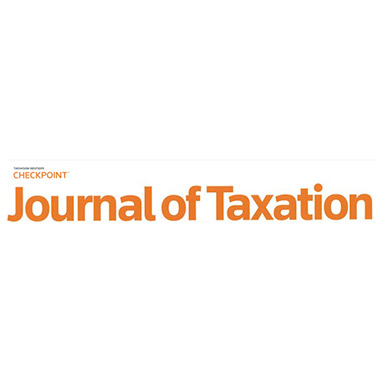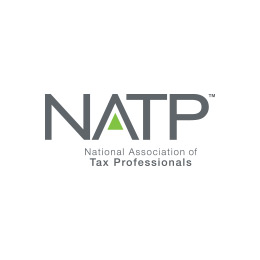If you have foreign financial assets and fail to report them to the Internal Revenue Service (IRS), you could face severe offshore penalties. These penalties can not only be costly, they can result in criminal charges and even prison.
Facing IRS offshore penalties can be a daunting experience, but you do not have to navigate it alone. Our attorneys are experienced in this area and can provide invaluable assistance, helping you understand your obligations, choose a compliance program, and represent your interests throughout the process. While offshore penalties can be substantial, the IRS offers several programs to put things right without being assessed the full range of penalties. Which program is available to you will depend on the circumstances of your case.
For a free evaluation with our attorneys for offshore penalties, contact McCormick Tax Law at (215) 630-0861.
Types of Offshore Penalties the IRS Can Assess
The Internal Revenue Service (IRS) has established a range of penalties applicable to taxpayers who fail to comply with offshore tax obligations. These penalties are designed to enforce compliance and deter tax evasion associated with offshore accounts and income.
If you are facing punishment from the IRS, our attorneys for offshore penalties can help you fight it. U.S. taxpayers, whether residing in the United States or abroad, are required to report their worldwide income, including income from offshore accounts. Failure to do so can lead to significant penalties assessed by the IRS. These penalties vary in severity, depending on the nature and extent of the non-compliance:
FBAR Penalties
The Report of Foreign Bank and Financial Accounts (FBAR) is a common type of offshore penalty that U.S. persons might face. In order to comply with the FBAR regulations, individuals who have a financial interest in or signature authority over foreign financial accounts exceeding certain thresholds are required to file an FBAR.
If an individual willfully fails to file an FBAR, they might face a severe penalty of 50% of the maximum value of the foreign financial account per violation. Therefore, it is crucial to comply with FBAR regulations to avoid any penalties or criminal consequences, including prison time.
Offshore Voluntary Disclosure Penalties
The IRS’s Offshore Voluntary Disclosure (OVD) program is a system that allows taxpayers to come forward and voluntarily disclose any unreported offshore accounts or income they might have. This program was created to provide relief to taxpayers who might be facing potential criminal charges for failing to report their offshore accounts and assets. However, participating in this program can still result in significant financial penalties.
Under the OVD program, taxpayers who come forward will be required to pay back taxes and interest on any unreported income. Additionally, they will be subject to penalties that can be over three times the unpaid tax amount. These penalties are based on the value of the assets held in the offshore accounts, and they can vary depending on the severity of the taxpayer’s noncompliance.
It is important to fully understand the potential consequences of participating in the OVD program before deciding to do so. While it can provide some relief from criminal charges, taxpayers should be aware of the substantial financial penalties that come along with it.
International Information Return Penalties
The IRS can also impose penalties for failure to file international information returns. These penalties apply when there is a failure by a U.S. taxpayer to provide information relating to certain transactions with foreign trusts and receipt of certain foreign gifts.
Miscellaneous Offshore Penalty
If a taxpayer has not reported an offshore account, asset, or investment in a timely manner, the IRS might impose a miscellaneous offshore penalty. This penalty is typically 5% of the highest aggregate balance or value of the taxpayer’s foreign financial assets that are subject to the penalty during the tax year.
Failure to File Form 5471 Penalties
Form 5471, “Information Return of U.S. Persons With Respect to Certain Foreign Corporations,” is another form that can attract penalties if not properly filed. However, a recent court ruling has indicated that the IRS does not have the authority to assess penalties for a taxpayer’s failure to file Form 5471.
IRS Programs that Can Help You Avoid Offshore Penalties
In an effort to promote compliance with international tax obligations, the IRS has established several programs aimed at helping taxpayers avoid offshore penalties. These programs provide avenues for taxpayers who have failed to report foreign financial assets or pay taxes on foreign income to rectify their mistakes without facing severe penalties.
Streamlined Filing Compliance Procedures
The Streamlined Filing Compliance Procedures is a program that aims to assist taxpayers in avoiding offshore penalties. This program is specifically designed for individuals who might have unknowingly failed to report foreign financial assets or pay taxes on foreign income. The program offers a simplified and expedited path for such individuals to rectify their non-compliance and come into good standing with the IRS.
The process of participating in the Streamlined Filing Compliance Procedures involves submitting amended tax returns and Foreign Bank Account Reports (FBARs) for the past three years. Additionally, any outstanding tax and interest must be paid. It is worth noting that the program typically results in lower penalties being imposed than would otherwise be the case.
By taking advantage of the Streamlined Filing Compliance Procedures, taxpayers can avoid significant penalties and potential legal issues. This program is an excellent opportunity for individuals who have made mistakes in their reporting of offshore accounts to rectify their non-compliance and come into good standing with the IRS.
Offshore Voluntary Disclosure Program
The Offshore Voluntary Disclosure Program (OVDP) is another useful tool for taxpayers with previously unreported foreign accounts or assets. The OVDP provides a structured process for taxpayers to disclose their offshore assets and pay the appropriate taxes, interest, and penalties.
The OVDP has been successful in encouraging taxpayers to disclose their offshore assets, resulting in billions of dollars in collected taxes, interest, and penalties. However, it is important to note that the OVDP was discontinued in 2018. Despite its discontinuation, the principles of the OVDP can still provide valuable insight into how the IRS handles offshore non-compliance.
IRS Criminal Investigation Voluntary Disclosure Practice
The IRS Criminal Investigation Voluntary Disclosure Practice is another essential program for taxpayers with unreported income. This practice allows taxpayers to voluntarily disclose their non-compliance to the IRS Criminal Investigation division, potentially reducing the risk of criminal prosecution.
While this practice does not guarantee immunity from prosecution, it is generally seen as a positive step towards resolving tax non-compliance and can result in lower penalties. However, this practice is primarily intended for taxpayers at risk of criminal prosecution for willful violations of tax laws.
Our Attorneys for IRS Offshore Penalties Can Help Defend Your Case
Call McCormick Tax Law at (215) 630-0861 for a free case review with our attorneys for offshore penalties.










